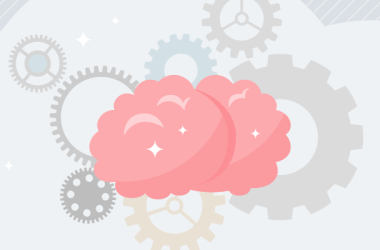Yes, conducting a drug and alcohol intervention before undergoing detox and treatment for addiction is the ideal approach to kick off a successful recovery. Mallard Lake Detox Center offers addiction and intervention programs in Dallas, TX, for all individuals since we consider intervention to be a crucial component of the first recovery period.
Intervention sets the foundation for addiction recovery, and since detoxification is often needed during the process, providing both treatments together ensures a smooth transition into the first phase of substance use disorder treatment.
Understanding Drug and Alcohol Intervention?
An intervention is the act of approaching an individual to resolve behavioral issues in their lives. Behavioral issues can arise from physical or mental health illnesses, such as drug misuse, psychological disorders, addiction, and eating disorders. When a person is unwilling or unable to address these concerns alone, close relatives and friends convene in a non-threatening manner to provide assistance and alternatives for rectifying harmful habits. Due to the influence of drug abuse and psychological disorders on behaviors, interventions will offer possibilities for detoxification, substance abuse treatment, continuous counseling, and other forms of therapy.
Who Requires Drug and Alcohol Intervention?
Films and television programs provide a certain perspective on interventions and the individuals who need them; nonetheless, each circumstance might vary significantly. The notion that addicts must reach “rock bottom” to get assistance is prevalent but inaccurate. Individual perceptions of rock bottom might differ significantly and occur at diverse degrees of adversity. An addict’s lowest point may manifest as job loss, whilst another’s may result from a car accident causing irreversible injury. Anticipating this fictitious breaking point just extends the danger and anguish that families may experience. Consequently, interventions have to occur promptly upon the recognition of drug misuse or addiction in a loved one. An intervention, whether it be a private conversation with a trusted confidant or a comprehensive group effort led by a professional, can be initiated at any time for a loved one grappling with addiction.
Signs That One Needs A Drug and Alcohol Intervention
The following signs can help you gauge whether you need to initiate an intervention for a loved one or someone that you know:
- Neglecting Responsibilities – Ignoring work, school, or family obligations due to substance use.
- Health Issues – Experiencing worsening physical or mental health tied to substance abuse.
- Isolation – Withdrawing from friends, family, and social activities they once enjoyed.
- Financial Struggles – Spending excessively on substances and neglecting essential expenses.
- Erratic Behavior – Displaying mood swings, aggression, or unpredictable actions.
- Denial of Problem – Refusing to admit the impact of their drug or alcohol use.
- Relationship Strain – Damaging personal relationships due to substance-related conflicts.
- Legal Troubles – Facing arrests, fines, or other legal issues from substance abuse.
- Increased Tolerance – Needing larger amounts of the substance to feel its effects.
- Failed Attempts to Quit – Repeatedly trying and failing to stop using drugs or alcohol.
Benefits of Drug and Alcohol Intervention
Below are some of the benefits of drug and alcohol intervention:
- Boosts Success: Increases the likelihood of accepting help.
- Encourages Action: Provides a chance to seek treatment early.
- Offers Support: Involves family and friends in the recovery process.
- Prevents Crisis: Helps avoid serious health or legal issues.
- Raises Awareness: Helps individuals see the impact of their addiction.
What to Avoid During Drug and Alcohol Intervention
The attendance of individuals at inventions can significantly affect the whole trajectory and effectiveness of the process. To provide the best intervention experience, avoid those who:
- Show Aggressive Behavior – Individuals prone to anger or hostility may escalate the situation.
- Criticize Harshly – Those who are overly judgmental can make the person feel attacked.
- Lack Emotional Control – Attendees who might cry or panic can derail the focus.
- Enable the Addiction – Avoid including people who have facilitated or ignored substance use.
- Have Conflicts with the Person – Past disputes may resurface and overshadow the intervention’s goal.
- Dismiss Professional Guidance – People who undermine the recommended approach can disrupt the process.
Do you feel your loved one needs an intervention? Reach out to experts at Mallard Lake Detox Center today!
Take the First Step Toward Expert Intervention Support and Addiction Recovery with Experts From Mallard Lake Detox Center Near Dallas, TX
In an ideal scenario, your addicted loved one would listen to the advice of others and recognize the importance of seeking professional help through a rehabilitation program. However, it is also vital to have realistic expectations of what will transpire during the meeting to avoid disappointment if your loved one does not instantly agree to seek treatment. If you’re having difficulty managing a loved one’s addiction, please contact Mallard Lake Detox Center serving Dallas, TX. We can help you find the necessary resources and guide you in organizing a successful intervention.







